I just returned from a week at Duke University where I attended an incredible institute focused on teaching the Middle East. The QFI/Duke University Dimensions of the Middle East Institute was attended by 40 teachers from across the country. Thanks to Qatar Foundation International (QFI), this learning experience is provided at no cost to educators.
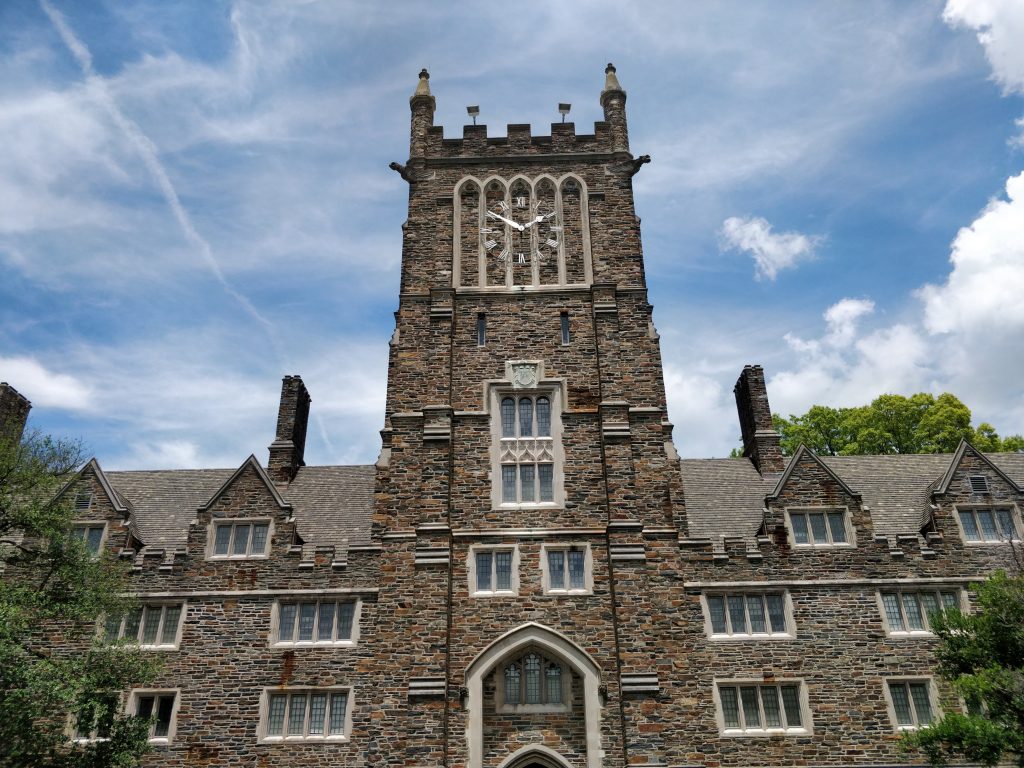
A First-Class Experience
Teachers are accustomed to sitting on low, uncomfortable stools and working on sticky cafeteria tables during a typical professional development. We bring our own snacks or search for something left behind in the teachers’ room when we’re desperate. This is not a profession where we expect luxury.
At the Dimensions of the Middle East Institute, we were treated very well. The institute included private rooms in downtown Durham, NC, a different catered breakfast and lunch each day, time and money to explore Durham’s restaurants for dinner options, and plenty of snacks throughout the day that kept us all very happy. We were told beforehand to leave extra room in our luggage for the free materials we would receive. These included books from many of the authors who presented at the institute.
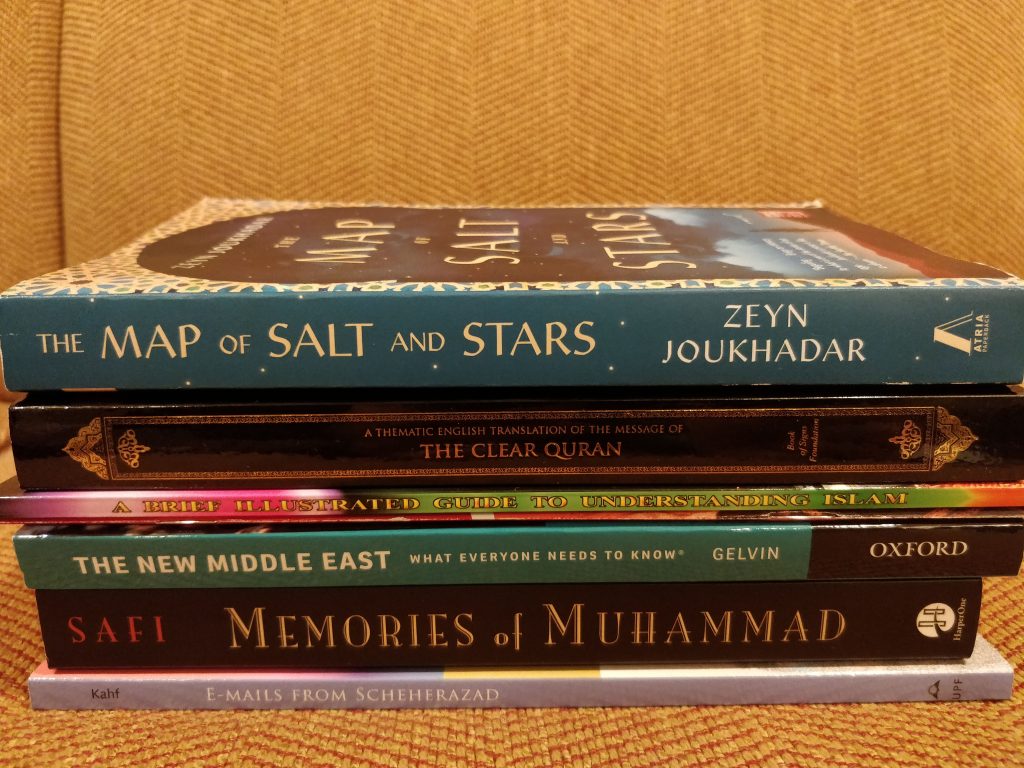
Back to School
The institute included about 40 hours of instruction presented by experts on the Middle East from around the country. It is impossible to condense all of that learning into a blog post, especially since I’m still processing much of it. I would like to share a few major takeaways that are relevant to my teaching and understanding of the region that we call the Middle East.
There’s no such thing as the Middle East.
This inaccurate term is used reluctantly by scholars, since it was coined by the British who defined it from their colonial perspective. Maps produced in the region generally call it the “Arab Homeland”, which is another problematic term since it is a diverse region that includes many other groups. Dr. Akram Khater, professor of history at North Carolina State University, taught us that drawing a map is “an act of violence” since borders by their nature exclude groups of people. Maps do more than represent an area, they implement a particular vision or agenda. The Middle East has a history of borders being drawn by colonial powers with their own agendas. It is important to keep this in mind as I prepare to teach my students the geography of the Middle East.
The region has a long history of peaceful coexistence between people of many faiths.
It would be easy to assume that Muslims, Jews, and Christians have been fighting forever if you pay attention to the news. The Israeli-Palestinian conflict dominates headlines from the region, as do the wars in Syria, Yemen, and other conflicts in the region. None of these disagreements can be accurately described as solely religious or “Middle Eastern.” Dr. James Gelvin, professor of Middle Eastern history from UCLA, reminded us that current problems in the region are not due to religion or culture. These arguments are lazy, he says. Each conflict is connected to the history of the region and involves many players from outside the region and complex factors.
Look a little further into history, however, and you will find many examples of people in this region living together peacefully, often in multicultural societies. This is not to say that there were no problems in the past, but it is important to put today’s world in perspective.
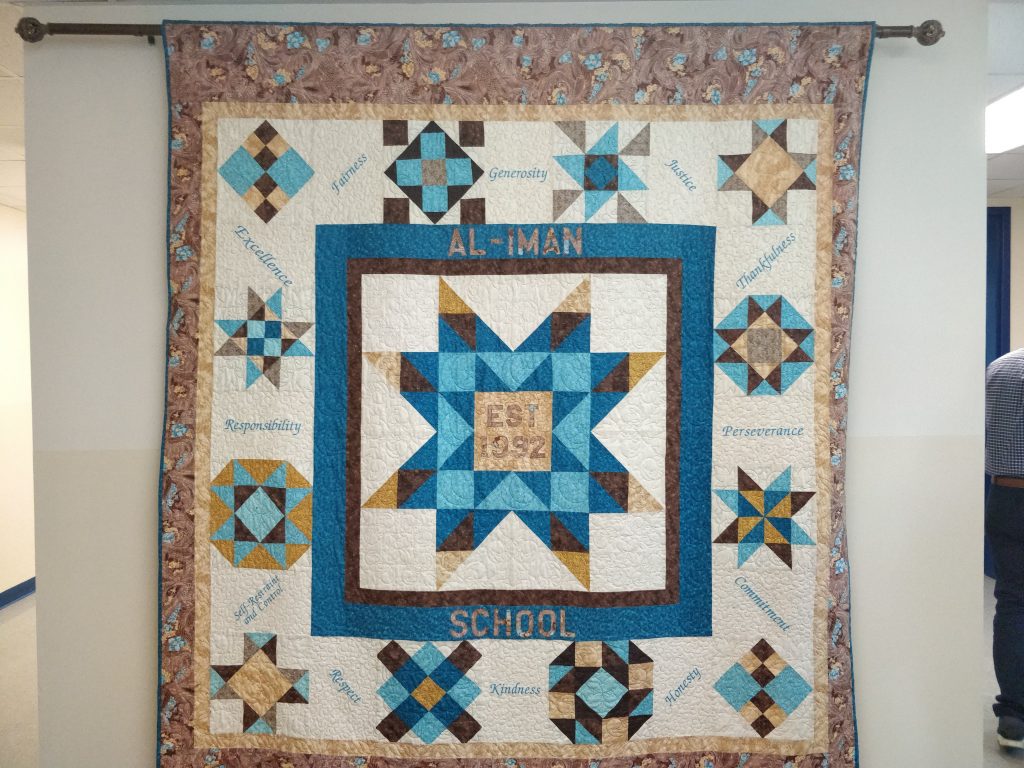
“Don’t teach the postcard view.”
Dr. Omid Safi, director of Duke University’s Islamic Studies Center, challenged us to not teach the “postcard view” of the Middle East. Teaching the basics, such as the five pillars of Islam, does not engage students and will not leave them with a lasting understanding of what Islam is. It is important to dig deeper, to show the beauty, history, and complexity of this region. I don’t yet know how I will do it, but Dr. Safi’s quote will remind me to work harder at giving students a fuller understanding of the Middle East.
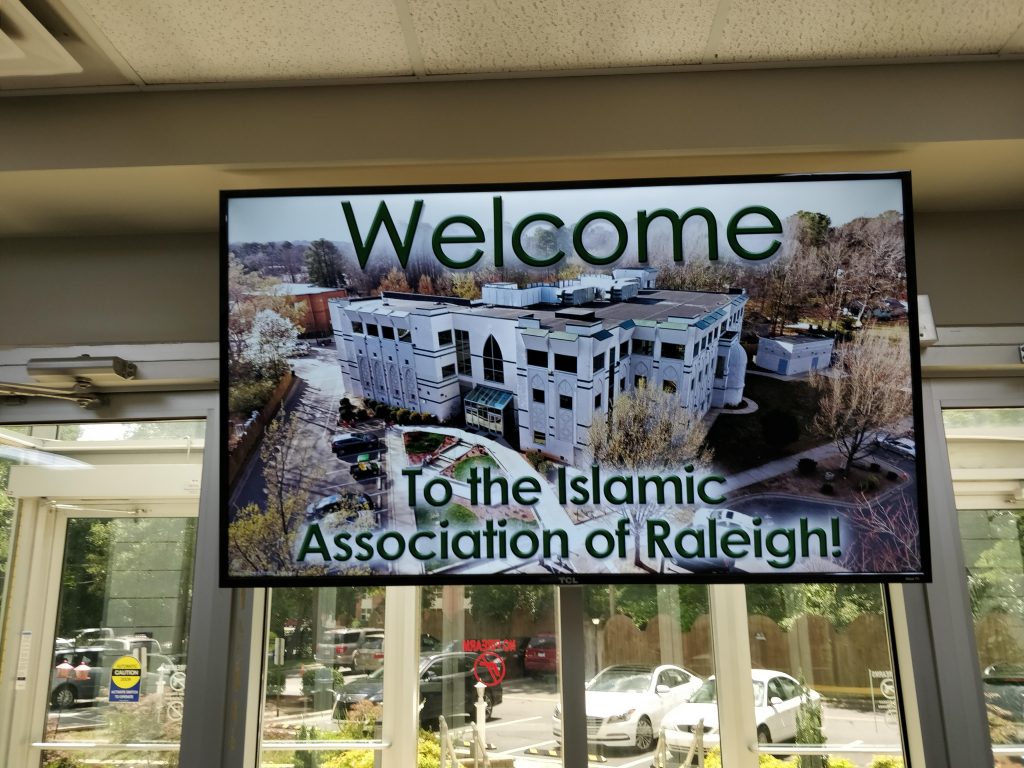
Rap can bring me to tears.
Omar Offendum sat on a stool in front of us, at first speaking so softly the people in the back of the room couldn’t hear, and then breaking into a rap. This poet, artist, and rapper performed in English and Arabic about his Syrian American experience, the proxy war that continues to devastate his homeland, and about his roles as a son and a father. His lyrics moved me and haunt me. His rap “Years” ends with this:
But if we had tried to immigrate today
They wouldn’t let us in
That’s unsettling …
Yeah … that’s unsettling.
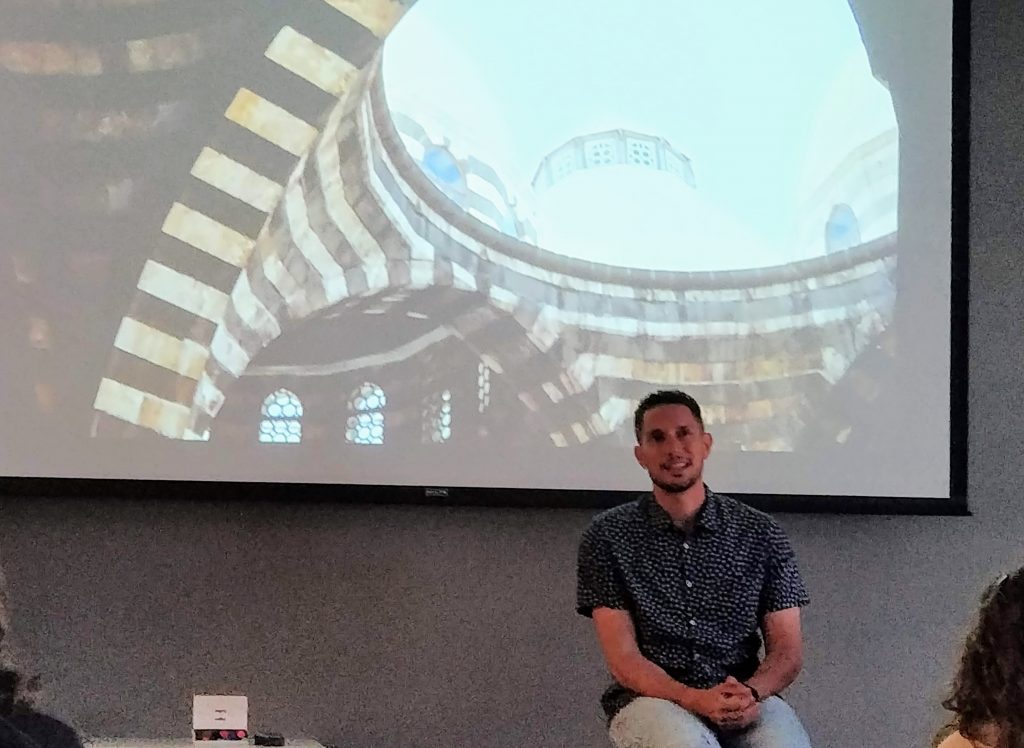
We learned about all kinds of art during the institute, including moving stories from Dr. Sahar Ishtiaque Ullah, author of The Hijabi Monologues. These powerful stories are written from the point of view of Muslim women and have been performed on stages around the world.
We were also privileged to Skype with Zeyn Joukhadar, author of The Map of Salt and Stars, a lyrical novel which intertwines a story from modern-day Syria and the tale of a mapmaker’s apprentice from 800 years ago. All of these resources reflect cultures and issues of the Middle East and will help me to engage students in learning about this region.
Teaching the Middle East is controversial.
When I told my Uber driver who picked me up at Raleigh-Durham Airport what I would be doing at Duke, she said, “So, they want to teach you how to teach about the Middle East? That sounds very controlling.” It was clear by her tone that she had an issue with why a teacher would be expected to learn about this topic.
At our welcome dinner, a teacher from Florida shared how a parent demanded her resignation after she played the Muslim call to prayer in class for her students.
On the second morning of the institute, we were given notice that word was out about what we were doing and at least one journalist was planning an article that would question the purpose of our workshops.
Stories were shared throughout the week about the challenges teachers face when teaching about the Middle East. Presenters shared many personal experiences with Islamophobia. Each of these examples reinforced for us the importance of what we were doing. Each of the challenges is based in ignorance; it is only through education (for ourselves and our students) that we can combat stereotypes and learn about and from the cultures of the Middle East.
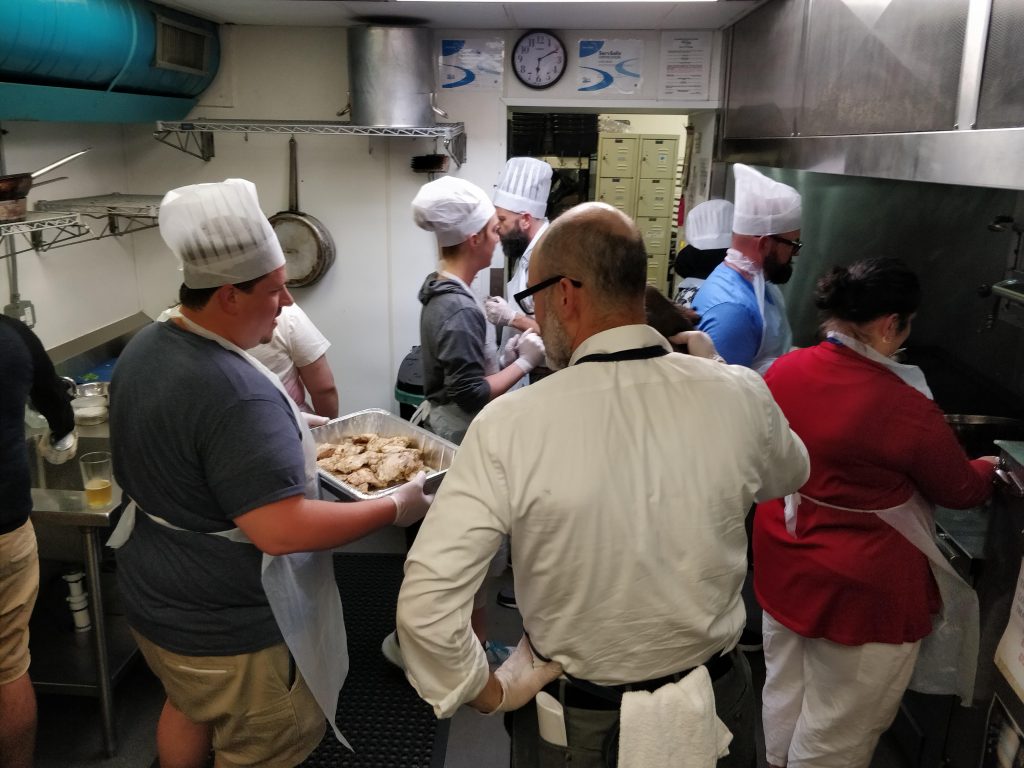
Thank you to QFI, and the amazing staff at the Duke Islamic Studies Center and the Duke University Middle East Studies Center for this incredible week of learning and reflecting.
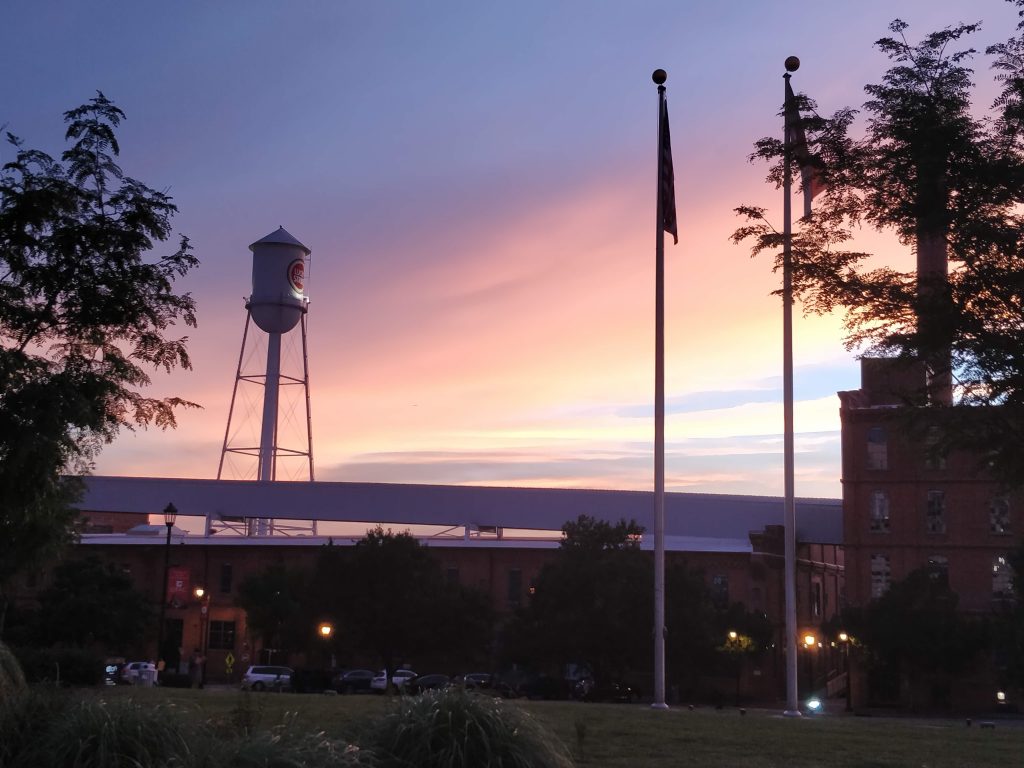
Any teachers interested in learning more about the institute or the many resources that are available for teaching the Middle East, feel free to contact me (tflanagan@stoningtonschools.org).
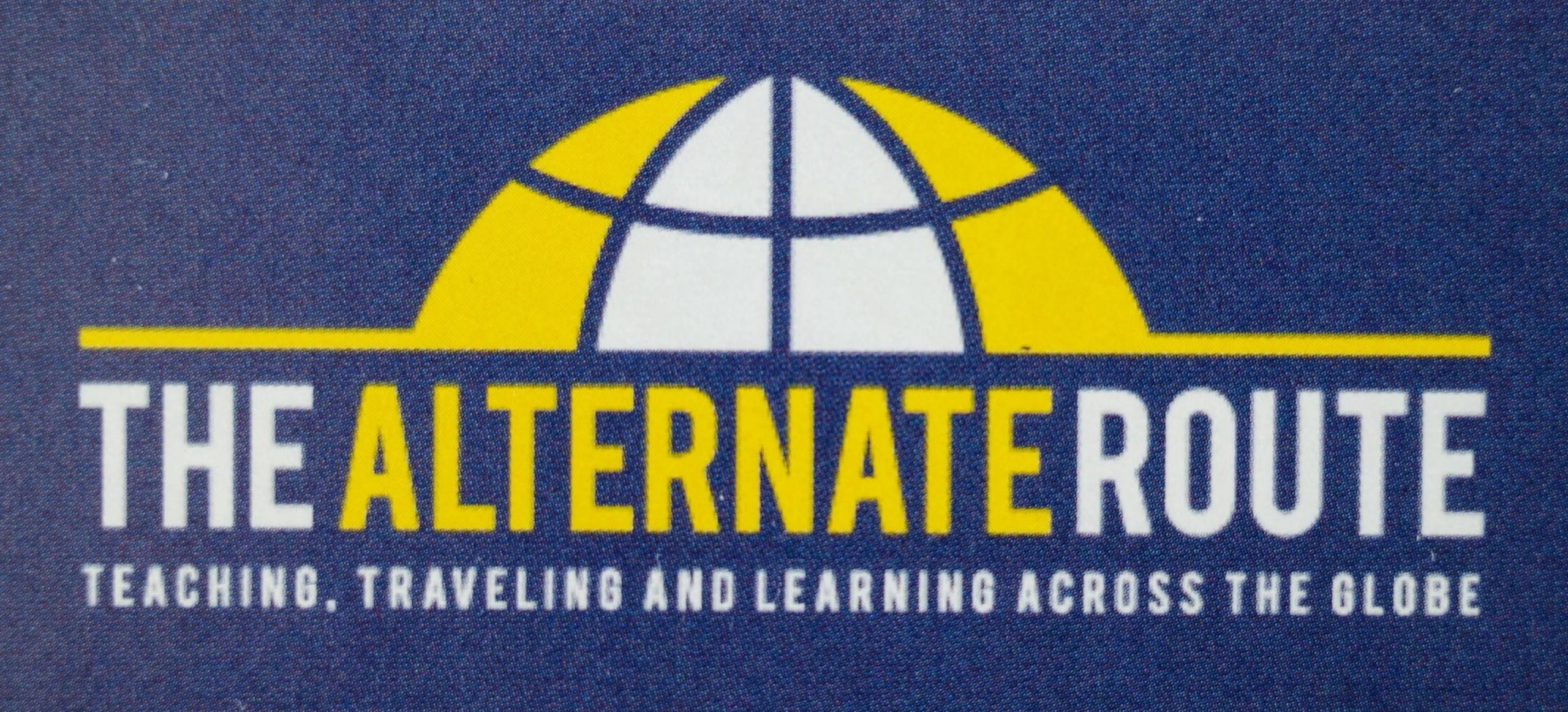
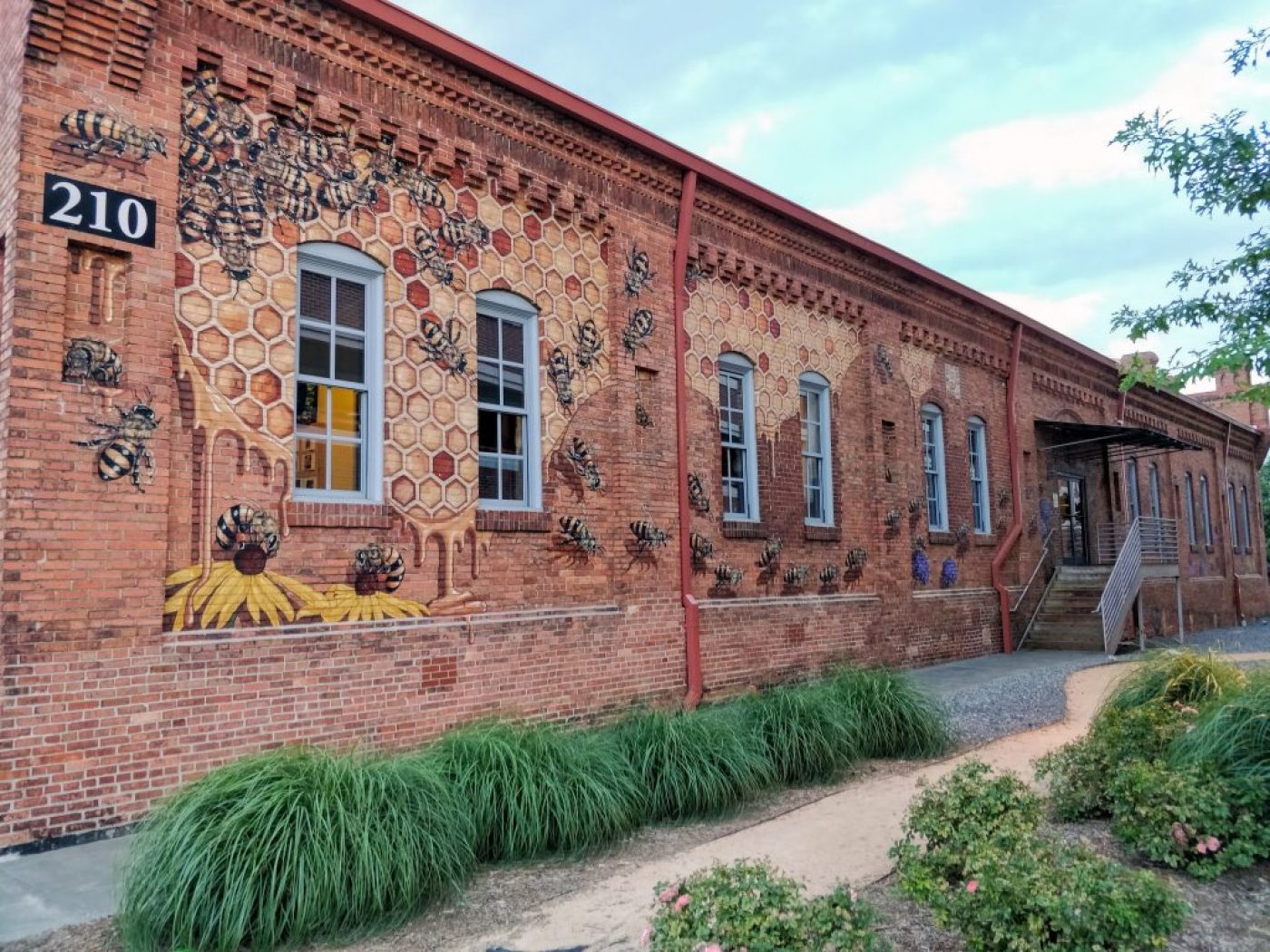
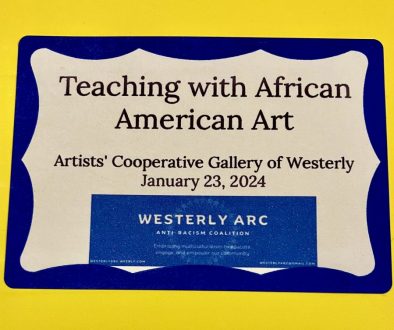
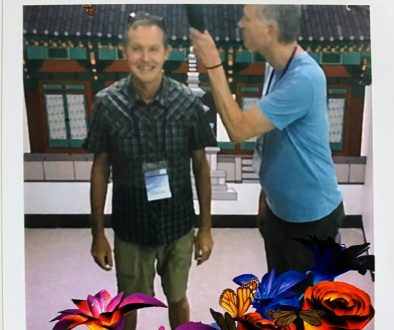
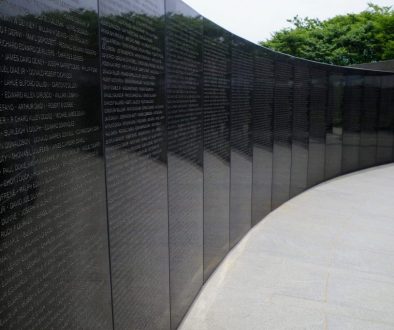
July 1, 2019 @ 06:25
Tim you continue to inspire and challenge!
July 2, 2019 @ 21:46
Thanks, Jean and Anthony!
July 1, 2019 @ 07:35
Tim –
Great pictures. Sounds like this was an amazing experience. What a pleasure to have such a rich learning experience and also such comfort! I know what you mean…I just spent two days in Boston at a workshop on Social Emotional Learning – content was great, but the room was way too small, poorly lit, hot, and there was no cold water available. Hard to learn well when you are not comfortable. I was also very interested in the remarks made by your Uber driver and the comment about the journalists. Wow. Just goes to show how important education like this is for all. I’m so glad this was worthwhile for you. And yes…I also find that after an intense learning experience it takes time to process it all. Welcome back. See you soon on the beach!
July 2, 2019 @ 21:48
Thanks for such a thoughtful comment, Elaine! I’m glad you can relate. Looking forward to hearing about your summer learning.
July 1, 2019 @ 08:15
Wow, it sounds like a powerful workshop! I will have to pick your brain for art connections!
July 2, 2019 @ 21:49
Yes! You could probably make a case for attending it yourself.
July 2, 2019 @ 22:07
Yes, I was thinking I may!
July 1, 2019 @ 08:32
So happy to be along for your newest adventure! Inspired learning! Thank you, Tim!
July 2, 2019 @ 21:50
This will be a summer of spontaneous adventures (I hope). Stay tuned!
July 1, 2019 @ 23:01
You really know how to pick an interesting institute and learn more than what was expected!
July 2, 2019 @ 21:51
Thanks! May need a ride to an airport sometime this summer.
July 5, 2019 @ 23:27
I’m in!
July 3, 2019 @ 20:43
It was a great week of learning, Tim, and you encapsulated it so well in this blog post : ) It was a pleasure to meet and learn with you : ) I hope our paths cross again in the future. Until then, take good care!
July 5, 2019 @ 09:23
Thanks for reading, Mary Fahey. It was great to meet you, too! Don’t forget to stop in Westerly if you are ever in the area.
July 4, 2019 @ 11:45
Tim, you never disapoint! I wish I were taking your class in the fall!! I know when you process everything you learned and add it to what you already know (and what you are going to continue to seek out – )your class will be amazing -your students don’t know how lucky they are to have you as a teacher (and fellow student as you continue your quest to improve your knowledge on the subjects you teach and improve your skill/craft as a teacher) . I can’t wait to see you! Happy Fourth of July. (…dosen’t that have many layers of meaning :)) . PS . Max will be so jealous when he hears you were at the Durham Bulls game!
July 5, 2019 @ 09:24
Thanks, Leah. I thought of Max when I was at the game. See you soon.